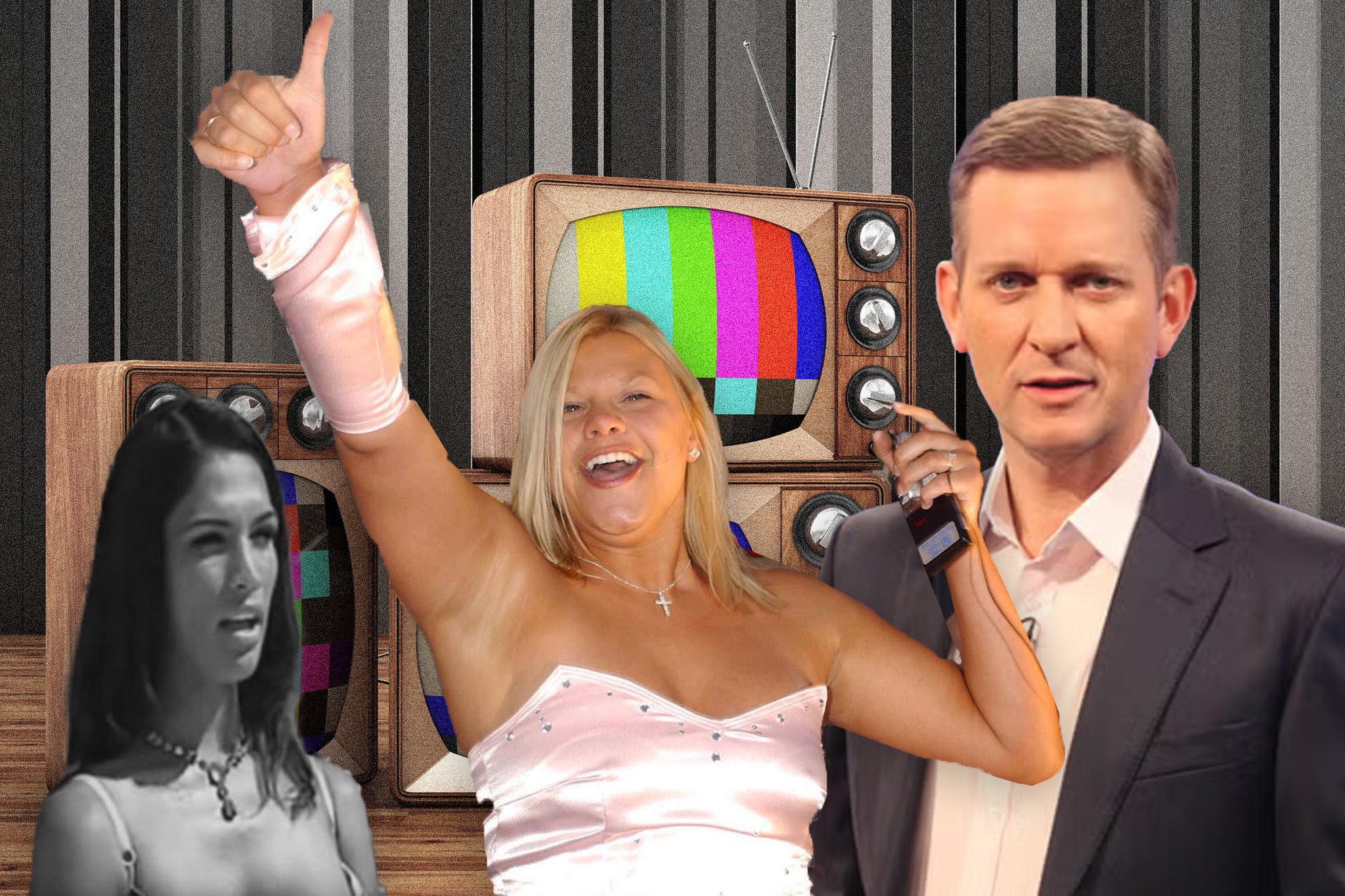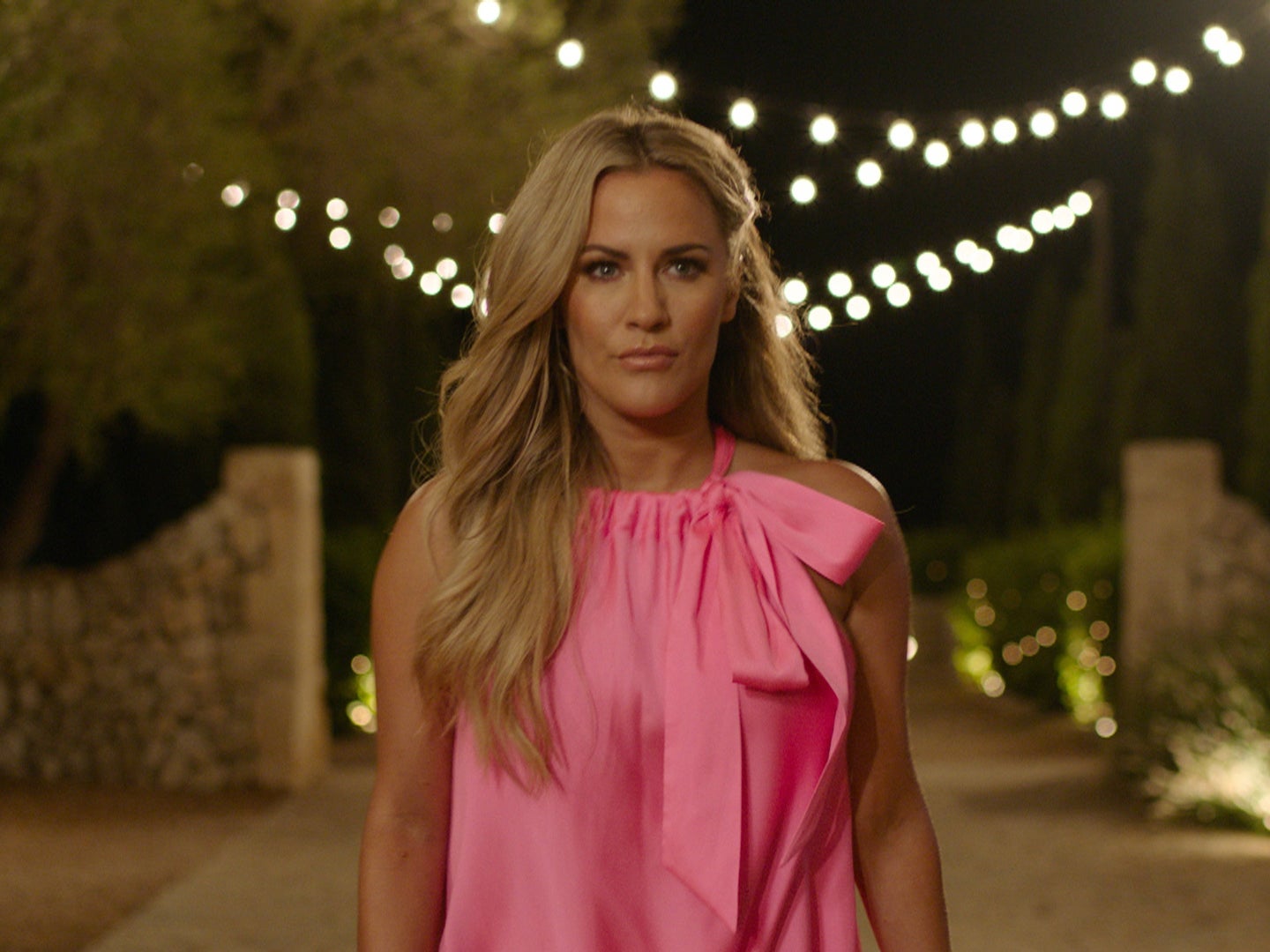Is TV too cruel and exploitative now?
The chair of Ofcom has complained about today’s television but his generation were the ones who first gave us cruelty as entertainment, writes Roisin Lanigan

Your support helps us to tell the story
From reproductive rights to climate change to Big Tech, The Independent is on the ground when the story is developing. Whether it's investigating the financials of Elon Musk's pro-Trump PAC or producing our latest documentary, 'The A Word', which shines a light on the American women fighting for reproductive rights, we know how important it is to parse out the facts from the messaging.
At such a critical moment in US history, we need reporters on the ground. Your donation allows us to keep sending journalists to speak to both sides of the story.
The Independent is trusted by Americans across the entire political spectrum. And unlike many other quality news outlets, we choose not to lock Americans out of our reporting and analysis with paywalls. We believe quality journalism should be available to everyone, paid for by those who can afford it.
Your support makes all the difference.The premise of the show was simple. A group of six men – students and chefs, opticians and Royal Marines, all aged between 20 and 35 – were flown to a sun-drenched villa in Ibiza. There, they would compete for the attention of one beautiful woman. If chosen to be her suitor, the contestants would win not just her heart but a £10,000 jackpot. Broadcast by Sky One in 2004, There’s Something About Miriam was Britain’s bizarre answer to The Bachelor, which began airing in America two years earlier. Presented by ex-children’s TV host Tim Vincent, the British show had a nasty twist embedded within its format. Its star, the 21-year-old Mexican model Miriam Rivera was beautiful. She was also a transgender woman, who had not yet undergone gender-affirming surgery.
The show, which ran – unsurprisingly – for just one season, found a winner in 23-year-old lifeguard Tom Rooke, who later rejected his prize money and teamed up with his fellow contestants in a lawsuit that sought to stop the episodes from ever airing. They settled out of court. Two decades on, it’s difficult to imagine a premise as nakedly cruel as There’s Something About Miriam being commissioned, let alone airing. But according to Ofcom chief Michael Grade, things have gotten worse, not better, in the 20 years since Rivera was made into a punchline for just under 1 million viewers.
Television today is “exploitative and cruel”, Grade told Boom Radio (an independent station aimed specifically at baby boomers) last week. “The exploitation dial has been switched up more and more for ratings,” said the peer and former chair of the BBC board. “It makes me mad. I really don’t like it or enjoy it. Television has also become patronising in the sense of: ‘This will do for the audience.’ No mind at work behind it. No real craft thrown in. Just bread and circuses.”
Grade, now 81, was the controller of BBC One in the mid-1980s. He later became chief executive of Channel 4 in the Nineties – where he was dubbed “pornographer-in-chief” by Daily Mail columnist Paul Johnson for his work at what Grade called “the naughty channel” – and spent much of the 2000s as the chair of ITV. After becoming a Tory peer in 2011, Grade elected to become a crossbencher to return to his first love, television: he was appointed Ofcom chair two years ago. All this to say that this is a man, his CV would seem to indicate, who knows TV. And if you take Grade at his CV, then you have to agree with his assertions that the licence fee is too high, that good television is simply too expensive for anyone other than the mega-streamers, and that channels like GB News (currently being investigated by Ofcom) are necessary for “freedom of expression”. “We also don’t want our broadcasters being owned and run for political reasons,” Grade told Boom Radio.
Look back at the 2000s, the twilight years of Grade’s telly tenure, and it’s hard not to draw a throughline from the cruelty of the past to what passes as terrestrial entertainment today. Although even contemporary critics baulked at its ugliness, There’s Something About Miriam was not an exception. It was the rule. Early 2000s TV was ruled by cruelty. From Wife Swap to Supersize vs Superskinny, The Jeremy Kyle Show to Benefits Street, this generation of TV was one that seemed to be created with the express purpose of punching down. Snog Marry Avoid? which is still frequently clipped on TikTok for horrified and bemused Gen-Zers, was brutal in its assessment of conventional beauty. Harm wasn’t accidental in these shows, it was deliberate. It was part of the appeal. Even Big Brother in its heyday wasn’t immune to the same kind of bear-baiting that Noughties audiences were taught to expect in their prime-time offerings. Despite its ability to make ordinary people into stars (Jade Goody, Alison Hammond and Brian Dowling all started on the show), the claustrophobia and sinister surveillance of Big Brother were central to its appeal. The show’s fun factor could never be divorced from its roots as some sort of Stanford prison experiment gone camp. “We had a theory,” Big Brother producer Phil Edgar Jones reminisced on a podcast last year, “that things were always funnier if people were arguing in fancy dress.”
It’s little wonder that The New York Times branded Britain’s reality TV shows from this era a “theatre of cruelty”, designed to demonise and make us hate the figures of derision that were offered up for consumption: especially if they were fat, or unemployed, or just wore too much make-up. “The fat, the poor, the deluded, the disabled: all take their turn in the stocks, one by one in the viewing schedule,” the paper wrote in 2019. Soundbites of Fat Families host Steve Miller branding obese people disgusting losers routinely make it onto the For You Page. Channel executives, particularly for Sky One and Channel 4, invited us, the general public, to laugh at those worse off than us, and we indulged. It made those executives very rich. So it’s unsurprising that British TV stuck to that format for a long time – Jeremy Kyle, an ex-private school boy from Berkshire, made his name making fun of addicts and “benefit scroungers” while advertising for gambling platforms in his commercial breaks. He enjoyed 17 seasons of hosting before his show was finally cancelled after a guest died by suicide, after failing a lie-detector test on the show in 2019. Kyle now presents a primetime show on TalkTV.
It’s rich to have those who gave us the precursor to this genre of TV, which presented cruelty as entertainment, say that things have got worse
In the same year that Kyle’s show was cancelled, Love Island – which, at its peak, was pulling in up to 3.5 million viewers every night – was dealing with similar issues. Two former contestants, 26-year-old Mike Thalassitis and 32-year-old Sophie Gradon, both lost their lives to suicide. The show’s host Caroline Flack killed herself months later, in February 2020. In the aftermath, producers urged a change in how audiences interacted with contestants on reality TV shows, attempting to discourage cyberbullying, and encouraging viewers to “be kind”. While TV shows themselves have not become crueller in their content since the early 2000s, social media has now brought us closer than ever before to what we watch. It’s not even restricted to our reactions to reality TV. Netflix’s Baby Reindeer for instance, a show created by comedian Richard Gadd and based on his real-life sexual abuse and stalking, became popular enough this weekend that fans sought to unmask the real-life “Martha” and “Darrien” that Gadd had taken such pains to conceal. Exposing the real stalker, he has repeatedly said in interviews, would only bring harm to a vulnerable person.

Online, parasocial relationships (the sort of one-sided connection that people have with celebrities who have no knowledge of them) on Twitter and TikTok are increasingly insidious. But as social media plugs the gap between what we see on screen and what we can say to those people online – for better or for worse – messy reality TV shows and that bear-baiting we saw peak in the Nineties are increasingly falling out of fashion. Love Island’s suicides were a symptom of a wider problem in online harassment, which seems to have ramped up at the exact same time that “constructed reality” – partly scripted shows that present set-up situations as real life – is failing to give viewers the chaos they crave.
A 10-part podcast, Unreal: A Critical History of Reality TV, investigated the end of the constructed reality boom last year. Keeping Up with the Kardashians, for which the entire family are listed as executive producers, was cancelled in its original iteration, and it’s hard to imagine scenes like Kim beating Khloe with a handbag for being rude being shown on its replacement. It’s hard, too, to imagine chaotic American talk shows like Jerry Springer or Maury existing today, where the cruelty and the chaos exists in the aftermath of the show, instigated by viewers in online discussions, while the stars carefully curate and control their on-screen personas.

It’s harder to curtail and control online cruelty, but it’s rich, too, to have those who gave us the precursor to this genre of TV, which presented cruelty as entertainment, say that things have got worse, and that you wouldn’t have got the same kind of behaviour back in the good old days. In 2021, an investigative podcast called Harsh Reality looked back on the show that made Miriam Rivera famous during those same good old days. Unlike There’s Something About Miriam, the podcast celebrated her life in the Manhattan ballroom scene and her pop-cultural impact as the world’s first openly transgender reality television star. The producers were unable to speak to Rivera herself. Two years before it came out, and 15 years after she became famous, the model and TV personality was found dead in her apartment by her husband. The police ruled it was a suicide. She was 37.
If you are experiencing feelings of distress, or are struggling to cope, you can speak to the Samaritans, in confidence, on 116 123 (UK and ROI), email jo@samaritans.org, or visit the Samaritans website to find details of your nearest branch. If you are based in the USA, and you or someone you know needs mental health assistance right now, call or text 988, or visit 988lifeline.org to access online chat from the 988 Suicide and Crisis Lifeline. This is a free, confidential crisis hotline that is available to everyone 24 hours a day, seven days a week. If you are in another country, you can go to www.befrienders.org to find a helpline near you.
Join our commenting forum
Join thought-provoking conversations, follow other Independent readers and see their replies
Comments